On 29 October 2024, Judith Forbis celebrated her 90th birthday. This is a very special milestone and offered a wonderful opportunity to look back on the experiences, memories, and life she has accumulated over these nine decades. Interviewed by Judith Wenning, the jubilarian shares with us numerous important thoughts.
All photography unless stated Judith Forbis Private Collection
Judith Forbis is a well-known figure in the Arabian horse community, particularly recognised for her work with Ansata Arabian Stud, which she co-founded with her late husband, Don Forbis. Located in the United States, Ansata Arabian Stud was renowned for breeding high-quality straight Egyptian Arabian horses and has made significant contributions to the preservation and promotion of the Arabian breed. Judith is also a prolific author researching and writing extensively about straight Egyptian Arabian horses, their history, and their significance. Her passion for them and her dedication to the breed have made her a respected authority in the equestrian world.
Judith Wenning (JW): Judi, would you please share some cherished childhood memories with us?
Judith Forbis (JF): I’ve loved animals for as long as I can remember and fortunately my parents encouraged this love. My first “animal” as a young child was a little black and white Fox Terrier dog named Skippy. He was my best friend until one memorable day he was run over after escaping from our backyard. I was grief stricken. However, it prepared me to handle life and death at an early age and to know animals are loaned to us only for an appointed time.
When I was three years old, my parents took me for an afternoon drive. We happened to pass a pony ring and within minutes I was riding each pony; Minnie a black, and Silver the white – who became my favourite until I outgrew him and rode Zsa Zsa Gabor’s black gelding, Black Watch, to win my first blue ribbon.

Judith, age three, riding Minnie the black pony being led by her father, Bill Freni (right) and Herman the pony ring owner (left).
My parents, William and Audrey Freni, divorced when I was around five years old. However, they, as well as my mother’s twin sister Evelyn – the E in my middle name – and her husband George Whitwell, indulged my love for animals. For my 12th birthday 78 years ago, they gave me Walter Farley’s book, The Black Stallion. It changed my life and made me dream of racing Arabians across the desert in Arab lands, and a life with Arabian horses.
Both came true. And eventually I became friends with Walter Farley who encouraged me to write.
JW: What was it like when you and Don started to breed Arabian horses?
JF: When Don Forbis and I married in Turkey in 1958, we raced Arabian horses there and studied the breed throughout the Middle East. In 1959, we travelled to Egypt and bought three Arabian yearlings – a colt and two fillies by Nazeer (Mansour x Bint Samiha) – to eventually ride, but with no idea of starting a breeding farm. Life changed when, just for fun, we advertised their photographs in the Arabian Horse Journal. To our surprise, breeders from across the USA, including Doug Marshall of Gleannloch Farms, came to see them and wanted to breed mares to the colt, Ansata Ibn Halima (ex Halima).

A wedding picture that has never been published before. Judith remembers: “This is Don and me signing the civil legal marriage documents in Ankara, Turkey. After we signed them, the two Turkish clerks looked at us and said, ‘aren’t you going to kiss!’ Of course, we obliged. Needless to say, we weren’t expecting that!”
In the following years, the popularity of Arabians increased. The Golden Age of the Arabian horse in America began during the late 1960s and continued expanding into the early days of the new millennium. Prices climbed, auctions were frequent, and horse shows blossomed. A Top Ten at the US Nationals really meant something. I remember in 1971 when Ansata Ibn Sudan (Ansata Ibn Halima x Ansata Bint Mabrouka) won the US National Champion Stallion title, he competed against 83 stallions as compared to perhaps 20 total competitors today.

Newspaper clipping from the Chickash Daily Express. Don showed Ibn Halima in Enid after this appeared and placed second or third. The judge, Garth Buchanan, later called and came to the farm. Although she didn’t pin him champion, she was so impressed she said she just had to see him again – he was so “different”.
JW: What are you most proud of?
JF: Many things over a lifetime. Here are just four that come quickly to mind: No. 1, developing Ansata Arabian Stud along with Don, who passed away in 2008; No. 2, co-founding the Pyramid Society with Doug Marshall, to preserve and distinguish the Arabian horses preserved in Egypt by the Royal Agricultural Society/Egyptian Agricultural Organization; No. 3, assisting in rebuilding Kuwait’s Arabian breeding programs that had been decimated during the Gulf war; and No. 4, the books I have written.

Don and Judith with Ansata Ibn Halima at their Ansata Arabian Stud Farm in Lufkin, Texas. Ansata, Gleannloch and Bentwood formed a unique triangle in Texas during the 1980s and 90s and people came from around the world to visit the amazing Egyptian Arabians at these three farms.

Judith Forbis signing Ansata Hejzi – Born to Rule. Credit Suzanne

Judith at one of her lectures in the Arabian Gulf. Credit K. Media
JW: What do you wish you would have done differently?
JF: I don’t look back. Had things been different they wouldn’t be as they are today.

Ansata Ibn Sudan. Credit Sparagowski.
JW: If you had one message for the Arabian horse world, what would that be?
JF: Learn to accept change. History repeats itself in different ways. From the decline of the Arabian horse in the Arab world to its renaissance in the 1990s and dramatic return to the highest registrations of Arabians in the world today; from the rise of the Arabian in USA and Europe to its Golden Age as mentioned above, to a decline in Arabians and all breeds of horses, except in the Middle East, due to economic, generational change, and other factors.
While the Arabian horse is appreciated in many countries and has become an ‘international treasure’, we should understand it culturally belongs to its Arabian homelands – just as the Quarter horse belongs culturally to America. Neither breed will be ‘at home’ elsewhere.”

Judith and Don pictured at the time they were inaugurated into the Arabian Horse Trust Tent of Honor.

The Ansata Arabian Stud farm in Mena, Arkansas existed from 1980 to 2008 when it was sold after Don passed away.
JW: Where do you think the Arabian horse is heading?
JF: The world is changing so rapidly it is hard to predict. However, the future of the breed worldwide depends on new and innovative leadership that honestly serves the best interest of the horse, not human egos. I believe the breed will remain safe because it is God’s gift to mankind. However, we are duty bound to respect and maintain it, as demonstrated in the book Kinship with All Life noted below.”

One of the famous books by Judith Forbis, The Abbas Pasha Manuscript, listing the history of the strains of Arabian horses in his famed stables, by Gülsun Sherif and Judith Forbis.

Ansata Halim Shah – the “fountain photo” by Jerry Sparagowski that was later copied by many of the equine photographers. This photograph was taken at Ansata Arabian Stud before Halim Shah was exported to Qatar. Credit Sparagowski
JW: What is the best advice you ever received and from whom did you get it?
JF: Books have been my friends throughout my life. Three of my favourites, followed by significant quotes therefrom, have collectively advised me over the years: As a Man Thinketh by James Allen – As a man thinketh, so is he; The Greatest Thing in the World by Henry Drummond – LOVE: The greatest thing in the world; and Kinship with All Life, by J Allen Boone – How animals communicate with each other and with people who understand them.

Ansata Hejazi as a young stallion with Judith and Don. Credit Sparagowski.

The legendary mare Ansata Selket. Credit Judith Wenning

Ansata Iemhotep photographed in Mena. Credit Judith Wenning
JW: What does a typical day for you look like?
JF: Enjoying a cup of coffee in my living room overlooking Lake Wilhelmina, feeding my elderly pets George, a Pomeranian dog, and Sassy, a cat with many toes, then doing whatever the day calls for – writing, entertaining guests, seemingly always preparing for travel somewhere at home or abroad. Life is never dull.

Sassy, the seven-toed ‘mitten’ cat, with her mistress. Credit Lisa Abraham
Lead photo: 90th birthday portrait by Jenni Ogden of Judith with her beloved Pomeranian, George, at home in Mena, Arkansas. Credit Jennifer Ogden
JW: Please tell us about the festivities for your 90th birthday!
JF: Walter Mishek, a dear friend who founded Arabian Horse Times magazine at the time we were just beginning in the Arabian horse breed, and his remarkable wife Cheryl, invited me to their wedding last September. When they asked how I would celebrate my 90th birthday, I told them I wasn’t. However, they insisted on holding a special invitational party at their friends’ Frank and Robin Semples’ beautiful home in Tulsa, Oklahoma, during the 2024 US National Arabian Horse Show. They also collaborated with Stan Morey, who oversees the show, to hold a party at the Arabian Horse Association exhibit and followed by a short presentation in the ring about my contribution to the breed. Friends came from Egypt, Qatar and Europe as well as across the USA. it was a most delightful gathering and one of the most memorable times in my life.”

Judith poses with the memory book that many guests signed. Credit Richard T Bryant

Old friends get together for the birthday party, left to right: David Gardner, who promoted Ruminaja Ali; Marion Gardner; Omar Sakr of Sakr Arabians in Egypt; Judith; Lisa Lacy, whose father Jarrell McCracken founded Bentwood Farm; and Anna Bishop, former Executive Secretary of the Pyramid Society. Credit Diana Cantey

The hosts of the Forbis birthday party at the Semples’ home in Tulsa. Frank Semple, Cheryl Mishek, Judith, Walter Mishek, and Robin Semple. Credit Diana Cantey
JW: You are constantly travelling a lot. Which places on earth are still a must-see for you?
JF: My bucket list is short. As I write this, I’m preparing to travel to Florence, where some of my Italian/Sicilian ancestors on my father’s side resided as artisans. A few other trips may happen – cruising up the Nile again for the fourth time, and revisiting friends in the Middle East as well as traveling occasionally in the USA. But there is nothing I “must see” as at this point in time; “home is where the heart is”!

Great times in Bremen, 2013. From left to right: Judith Wenning, Judith Forbis, Omar Sakr, Marion Richmond, and Lisa Lacy.

From left to right: Fatma Hamza, Dr Hans-Joachim Nagel, and Judith Forbis. Credit Judith Wenning
JW: What does Mena mean for you? Do you consider it your home port?
JF: Oddly enough Mena, Arkansas, and the Mena House in Cairo, Egypt, which was just down the road from our home in Egypt, were both “ports” in my life – Mena (Mina) meaning the stopping point between the desert and the town, in this case the Nile Valley and the desert. Mena in Arkansas is my stopping point between the deserts of the Middle East and the green valleys, lakes and mountains of home. I’m happy in either place.”

Sunset over Lake Wilhelmina as viewed from the back porch of the Forbis residence. Credit Lisa Abraham
JW: What is next on your bucket list regarding projects and so on?
JF: Whenever I think about slowing down, there is always something to write about or project to support – so time will tell. Having just passed this milestone birthday, I am reminded of a quote attributed to Yogi Berra – the great Yankees baseball pitcher: “Birthdays are good. The more you have, the longer you live!” And I might add – “to accomplish more in life than you already have”.

Judith receiving the Lifetime Achievement Award at the 2016 All Nations’ Cup from former WAHO president, Dr Hans-Joachim Nagel. Judith was the first person to receive this newly established award. Credit Lisa Abraham
For more about Ansata Arabian Stud and Judith Forbis, click here.
For more features from TheArabianMagazine.Com, click here.


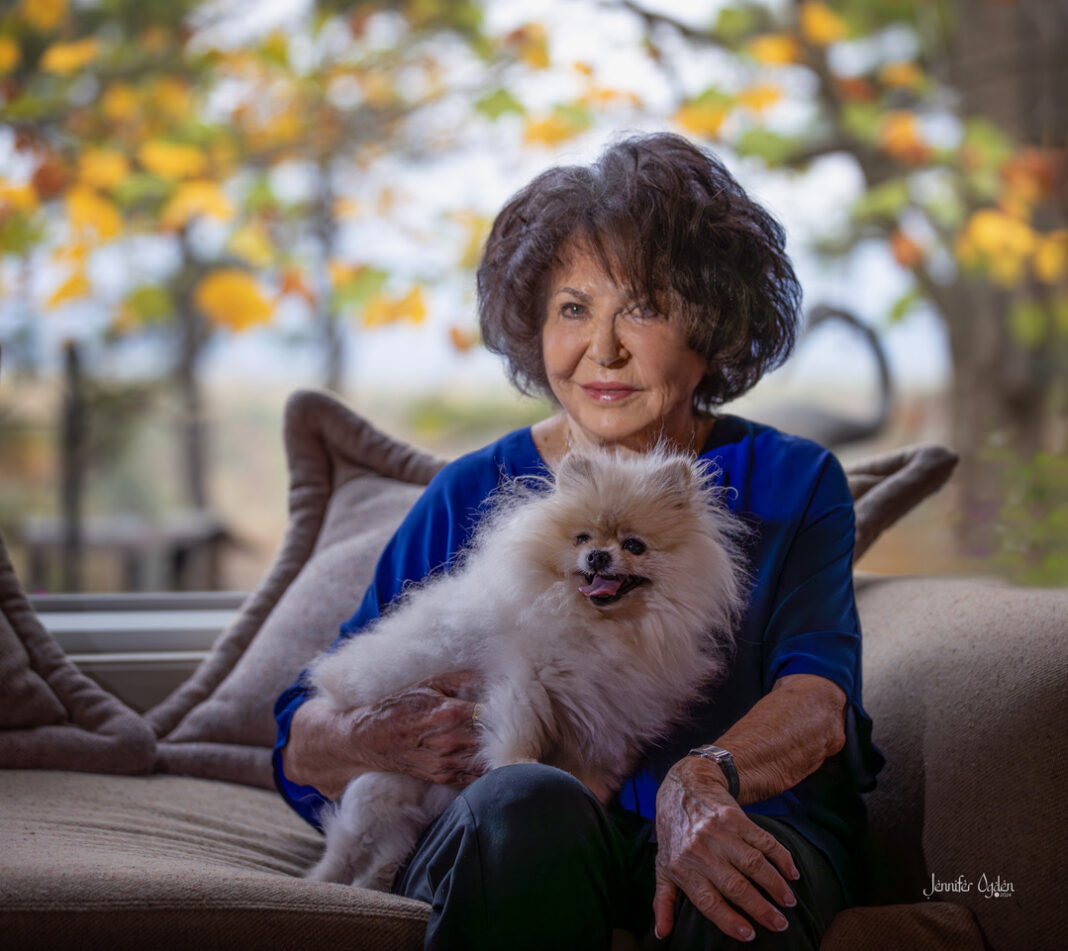
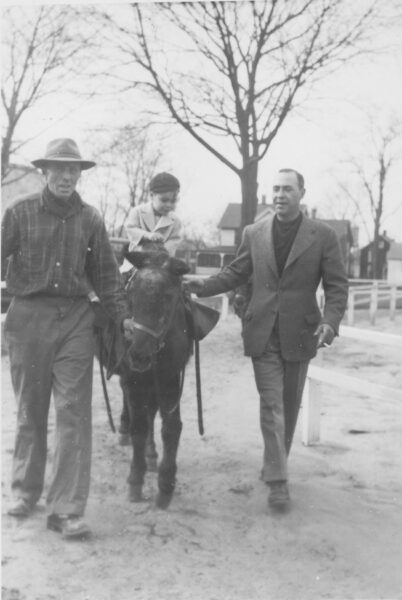
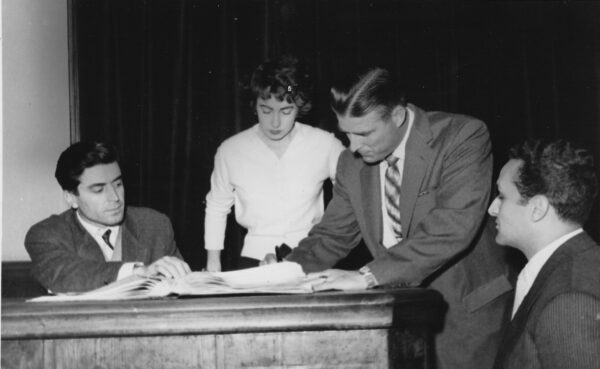
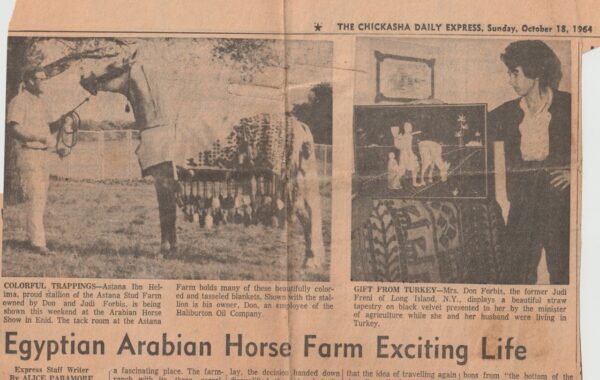
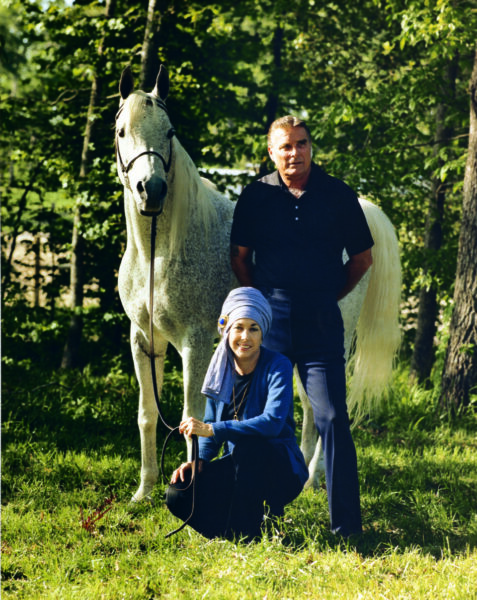
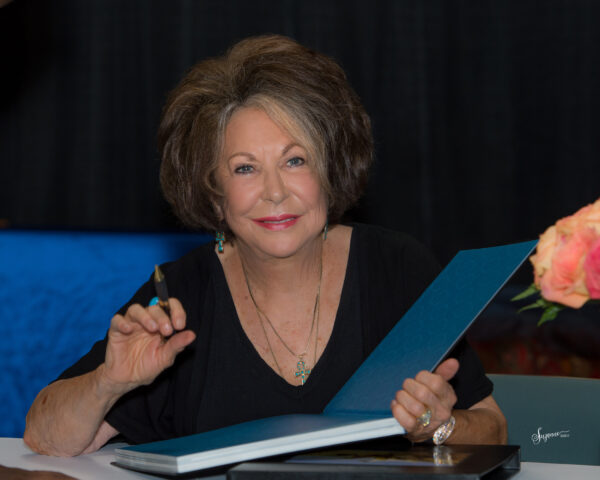
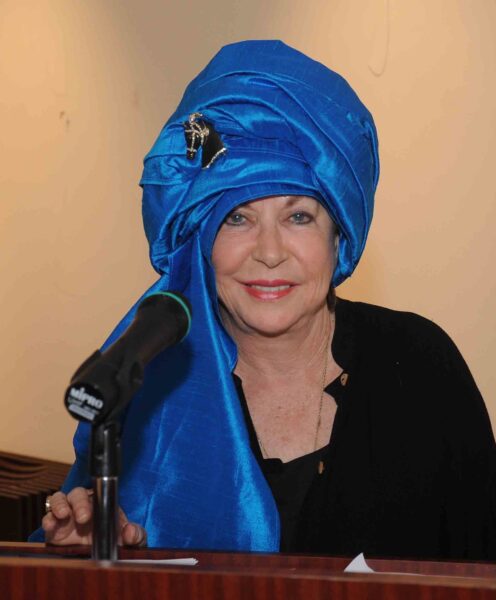
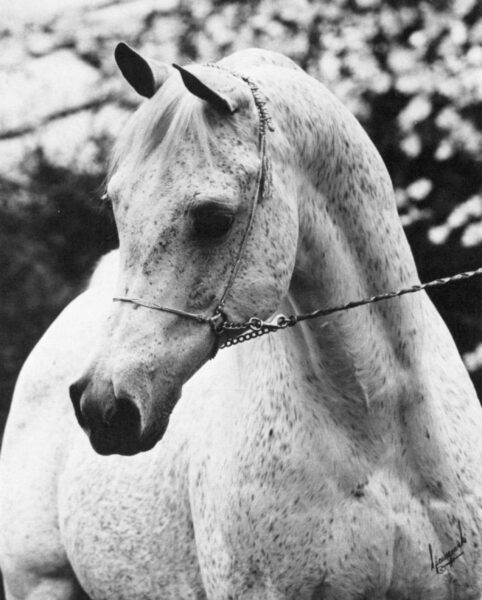
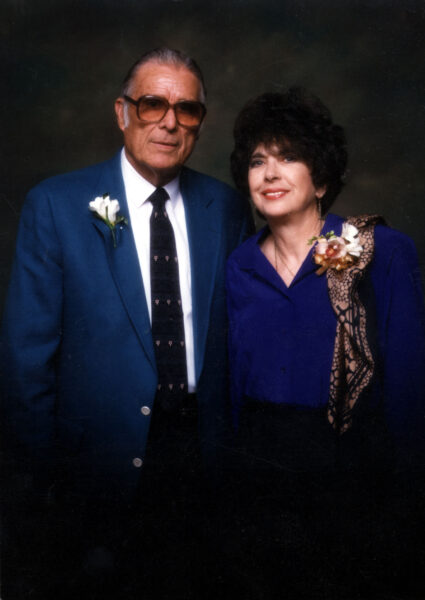
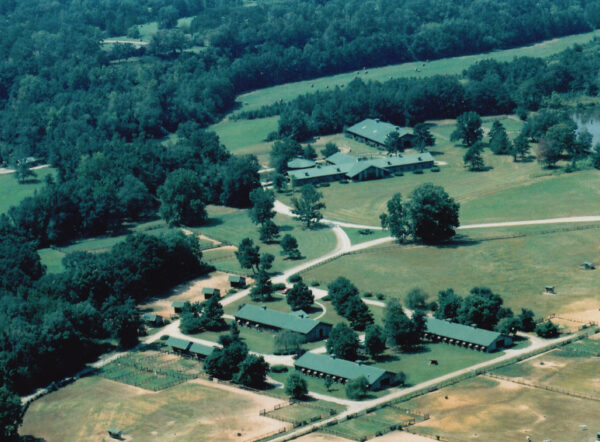
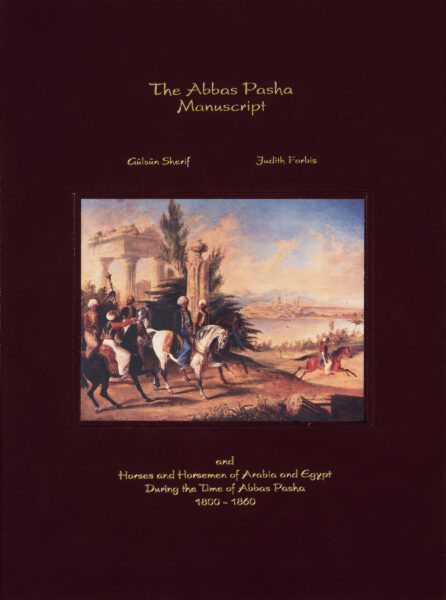
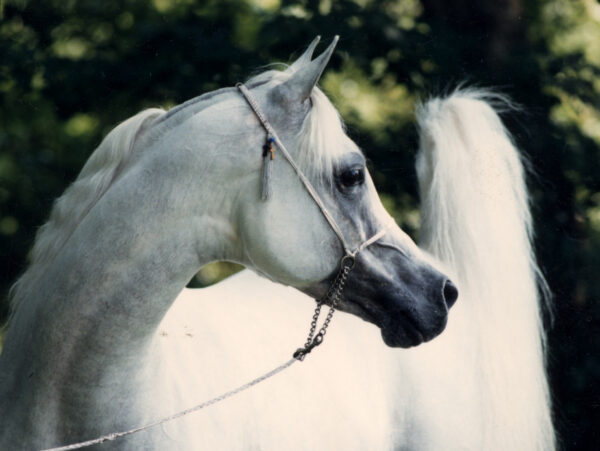
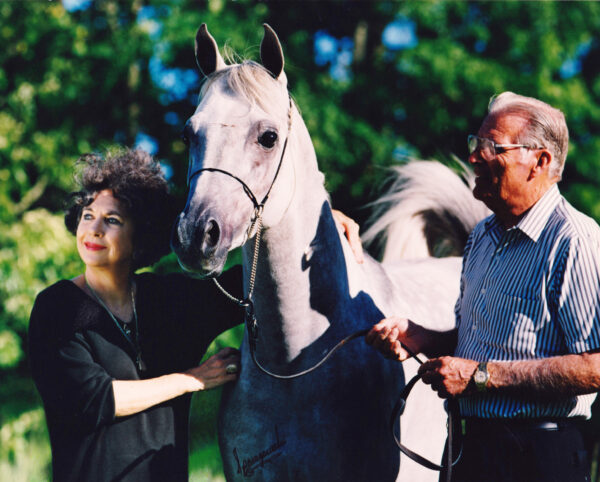
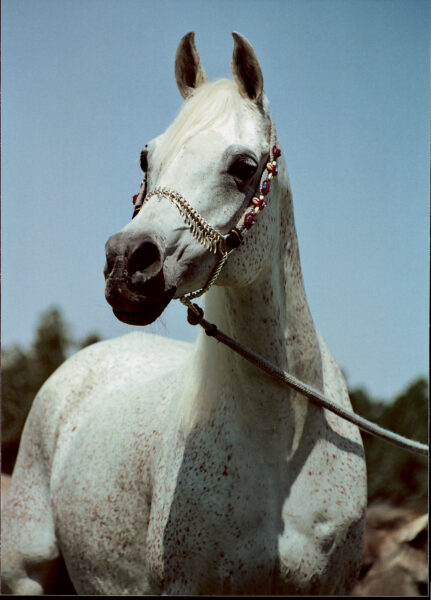
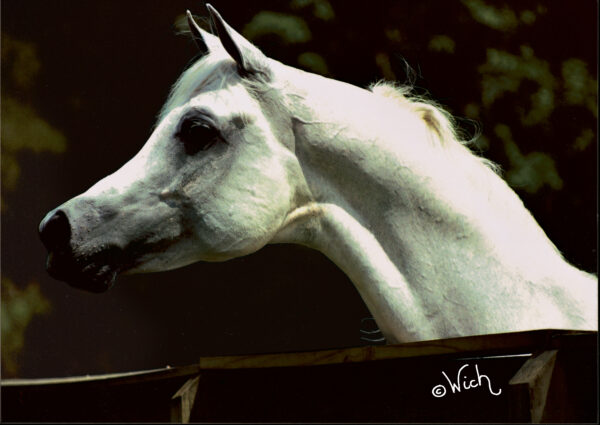
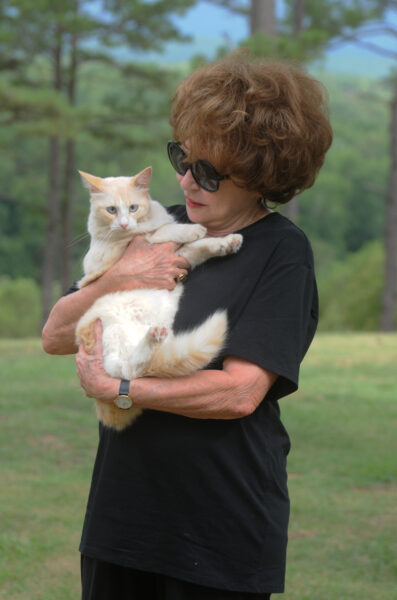
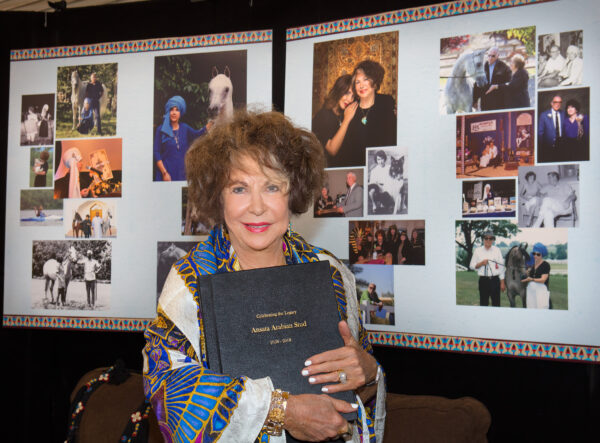
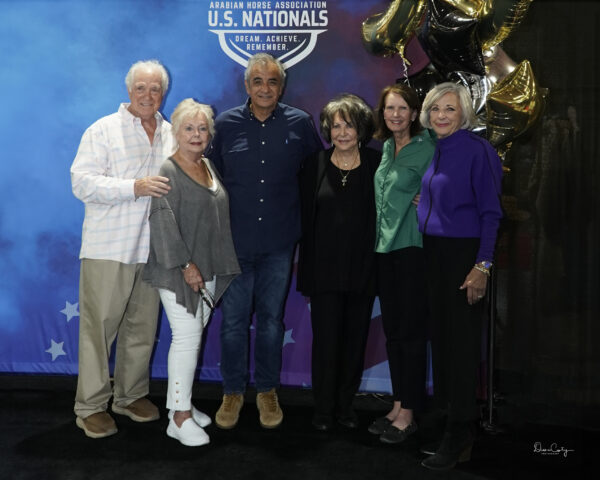
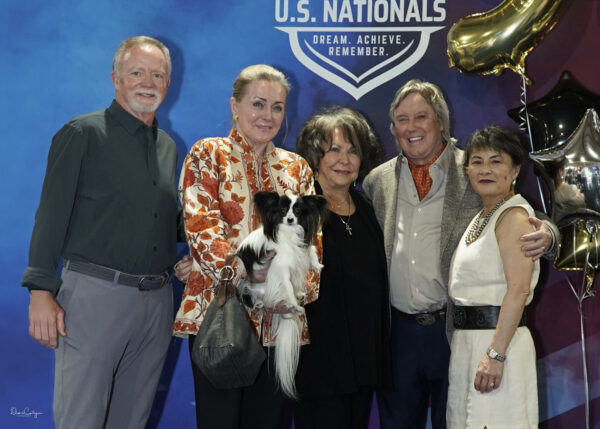
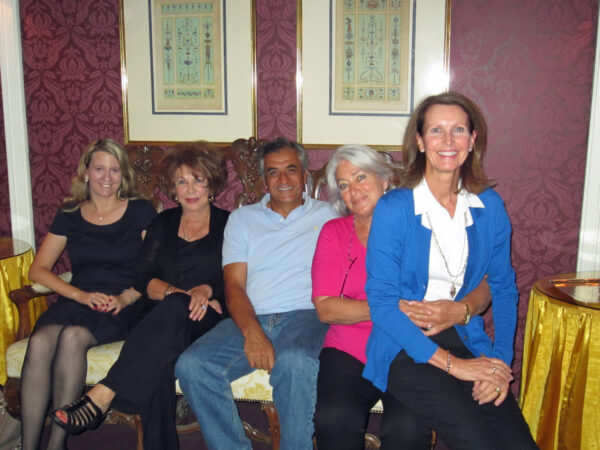
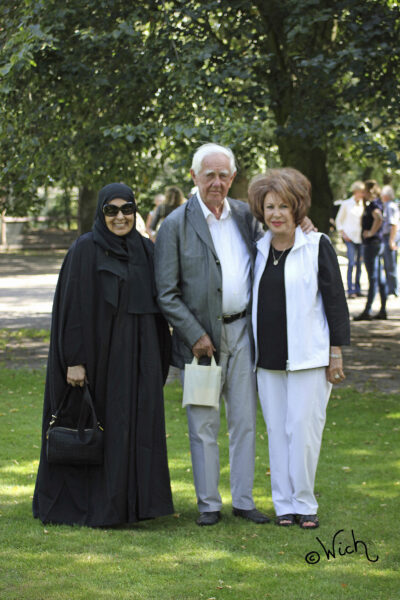

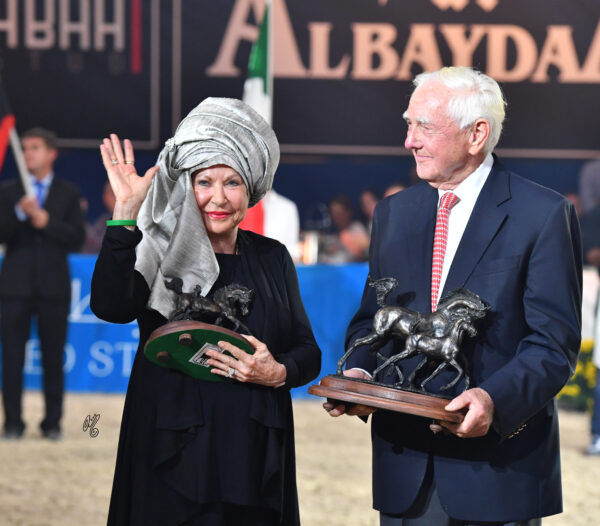









Great article. Happy Birthday, Judy! We have attended The Pyramid Society events since 1980 and we miss it greatly! We have many items from that time including pictures, ribbons from winnings in various classes, paintings, mare and foal sculpture (The Last Summer), Ansata Ibn Halima bust sculpture and many memories. We love the museum! Thank you for your part in keeping the Arabian Horse alive.